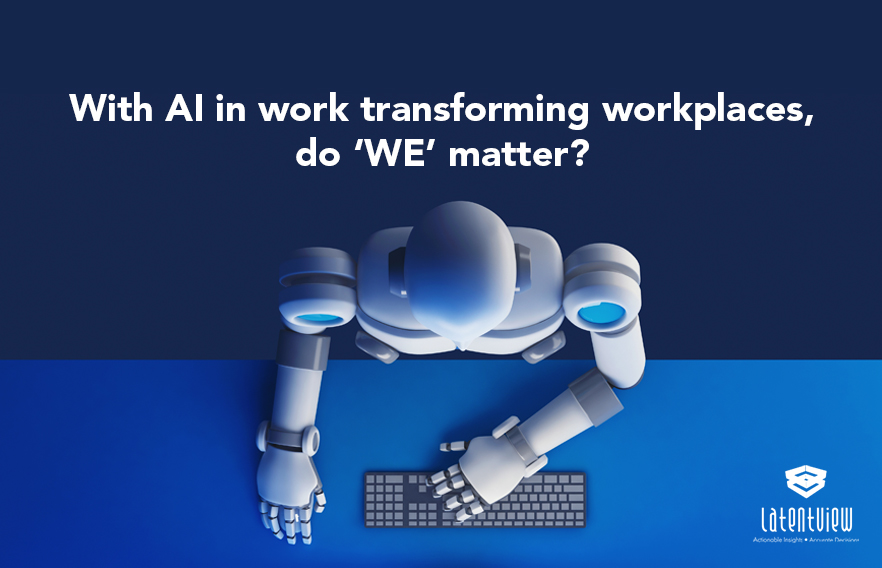As we enter a new decade and lookback, we cannot help but notice that the evolution of Artificial Intelligence so far has been staggering, with specialized AI systems capable of replicating human-like reasoning and cognition in specific tasks. These capabilities have often led to the fear of AI replacing jobs. The development of AI has been aided in no small measure by the massive amounts of data that is available and is being generated as we speak. We are creating a mind boggling 2.5 quintillion (1 followed by 18 zeroes or a billion billion) bytes of data each day, and by better algorithms and faster computers, which are becoming more accessible and affordable with each passing year. In fact, specialized AI has started becoming so commonplace that we barely notice it (Your phones for instance, come shipped with AI for assisting you in your day to day tasks).
AI has seen some remarkable advancements in the recent past. Innovative capabilities in the form of Autonomous vehicles, Machine Translation, Smart Reply, Chat-bots, and Meeting Assistants have gained traction. We are all set to witness the next level of innovation in computational resources to address the ever-growing training needs of such state-of-the-art models, which can sustain itself.
Susceptibility to automation
While organizations work on developing AI and adopting AI in work, experts in the fields are grappling with some key questions about the impact of the AI driven shift in the future workplace—in terms of jobs created, jobs lost, job role changes, need for diversity and ethical practices. With infrastructure becoming commoditized, intelligent models becoming automated, and the use of AI becoming widespread, are we entering an era where AI replacing jobs could become a reality? Or are we entering an era where smarter humans and intelligent machines collaborate in a utopian society.
Recent studies point to the fact that several jobs will be automated in the next decade. In fact, 1/4th of jobs would be automated since machines can perform 70% of their tasks and an additional 36% of jobs are at a risk of partial automation. Would that result in artificial intelligence taking jobs? Yes, for repetitive and routine tasks.
This is not the first-time humanity has had to deal with such fundamental shifts. The invention of the automobile, the strides we made in manufacturing over the course of the industrial revolution in the 20th century, have all meant the old ways of doing things fade away, even as new hitherto unimagined opportunities emerged.

Do humans stand a chance?
AI in workplaces can automate physical activities in highly structured and predictable environments. However, in models automating human decision-making, interpretability remains a challenge. Applications like criminal justice or financial lending especially require interpretability to make sure the model does not have any in built bias.
Considering all these challenges and unimagined opportunities, what could possibly define humans over AI is Empathy, which is the ability to sense others emotions. Emotions are inherently difficult to comprehend and interpret because there is most often a disconnect between what people feel and what they say they feel. The ability of a human to make a judgement based on how other individuals receive and interpret information is extremely vital for effective communication. AI researchers agree that the current forms of AI do not have emotions and cannot decipher emotions.
Even in a business context, we need to find the right people who can deploy human judgement on top of algorithms to deliver business value. This new intelligence calls for newer perspectives, because the value that AI in workplaces brings can augment, erode, obliterate or develop depending upon how wisely it is used. For, prudent people work not only towards creating economic value, but they also shoulder the responsibility of caring for the organization and its sustainable value. They adopt a collaborative style which is built upon trust, empathy and solid relationships.
Author and speaker John Naisbitt sums it all up in this quote: “The most exciting breakthroughs of the 21st century will not occur because of technology but because of an expanding concept of what it means to be human”



